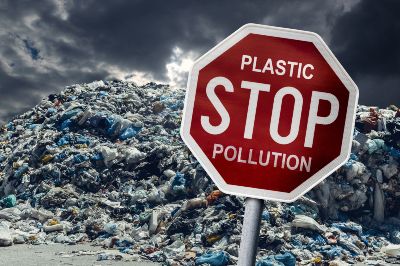The beauty industry, while often associated with glamour and self-care, has significant environmental implications that are increasingly coming to light.
From the production of cosmetics to the packaging and distribution of products, every step of the beauty supply chain can have environmental consequences. This month’s article takes a peek into some of those consequences.
Water
One major concern is the use of certain chemicals in beauty products. Many of which can be harmful to the environment once they are washed down the drain and enter water systems. One such example is Oxybenzone, often found in sunscreens. These chemicals can disrupt ecosystems, harm aquatic life, and even end up in our drinking water.
Waste
Another significant issue is the excessive packaging used in the beauty industry. Many products come in non-recyclable or hard-to-recycle packaging, leading to a build-up of waste in landfills and oceans. Did you know that up to a third of all landfill waste comes from personal care packaging? The rise of single-use products (wipes, I’m talking to you here!) and disposable packaging only exacerbates this problem.

Plastic
The beauty industry heavily relies on plastic packaging, contributing to the global plastic pollution crisis. The production and disposal of plastic packaging have a detrimental impact on the environment, from the extraction of fossil fuels for plastic production to the pollution caused by plastic waste. Many products even use petrochemical-derived ingredients, which can build up toxicity levels in our bodies and cause potential health risks.
Biodiversity and Habitats
Furthermore, the beauty industry has been criticised for its contribution to deforestation and habitat destruction. Ingredients like palm oil, commonly used in cosmetics and personal care products, are linked to the destruction of rainforests and the loss of biodiversity. Unsustainable sourcing practices can also lead to overexploitation of natural resources, further threatening fragile ecosystems. As consumers become more aware of these issues, there is a growing demand for sustainable and eco-friendly beauty products that prioritise environmental conservation and ethical sourcing practices.

The Future?
In response to these environmental concerns, some beauty brands are taking steps to reduce their impact on the planet. This includes using recyclable or biodegradable packaging, sourcing ingredients ethically, and opting for sustainable production methods. Consumers can also make a difference by choosing products from environmentally conscious brands, reducing their own consumption, and properly disposing of beauty products to minimise environmental harm. By raising awareness about the ecological implications of the beauty industry and supporting sustainable practices, we can work towards a more eco-friendly and responsible beauty sector.
Get in Touch
If you’d like to know more about choosing ethical, sustainable beauty products, please get in touch. This is something I am very passionate about helping people to do. All the products I work with as a professional makeup artist are natural, organic certified, sustainably sourced, made in the UK, refillable or recyclable, and vegan and cruelty-free.
For more beauty related articles, click here.



